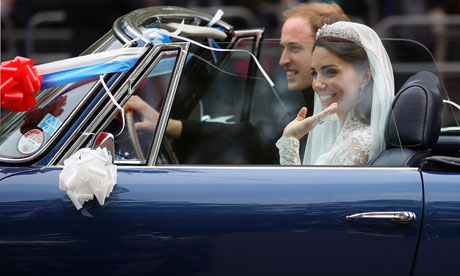At least two people have been wounded by the gunfire since Tuesday.
Police say there have been multiple fights and shooting incidents involving two South Side gangs, "Wag Block" and "J Block," over the past several months, but this is the first time two people have been shot within a 24-hour period.

Kenneth Fox was arrested in connection with Wednesday night's shooting.
The shootings have occurred in four-block area between Madison and Jackson avenues west of U.S. 41.
"Pretty soon, somebody's child is going to get shot," said Jerry Dejarnett, 58, one of the few residents of the area willing to talk about the shootings. Dejarnett said this is the most violent period he's witnessed in his three years of living there.
In the most recent shooting Wednesday night, two women and two girls — ages 3 and 4 — were targeted.
No one in that incident was injured, police said, and the two people shot earlier are recovering fine, according to police, but officers doubt the retaliations they suspect are happening are over.
"I think things may be quiet for a day or two," said Sgt. Larry Nelson, "but you can always expect more violence when you have drugs and you have gangs."
Nelson wouldn't disclose how police plan to respond, but he noted that there has been a "heavy concentration" of marked and unmarked police cars in that area.
Police arrested Kenneth Fox, 25, early Thursday in connection with Wednesday night's shooting. He remains in Vanderburgh County Jail without bond on preliminary charges of attempted murder with a firearm and criminal gang activity.
Police are looking for David "Buck" Burge, 30, and Rayshaad L. Bushrod, 23, both of whom reportedly accompanied Fox and are reportedly in the "J Block" gang, according to an Evansville Police Department probable cause affidavit.
According to Fox's arrest affidavit, Wednesday's drive-by shooting happened in the 1000 block of Jefferson Avenue about 9:42 p.m.
Police found multiple shell casings in the street. One of the women, who lives on that street, told officers that Fox, Burge and Bushrod were in a gray Chevrolet Avalanche when they fired handguns from the vehicle at her, another woman and the two children.
Police found the gray Chevy Avalanche abandoned with its motor running in the 300 block of West Oregon Street near Harriett Street.
Officers learned Fox had a girlfriend who lived in the 1200 block of North Harriett St. about two blocks from where the vehicle was found.
Officers surrounded the house and Fox surrendered without incident.Sgt. Larry Nelson said that victim "knew of" the three men, and according to Fox's affidavit, she told 911 dispatchers, "It was the same subjects who were shooting last night."
That earlier shooting occurred near the intersection of Jackson and Evans avenues about 12:30 a.m. Wednesday when a man was shot in the right shoulder. Three black males were reported to have been seen running away from the area.
Lt. Monty Guenin said the 26-year-old man who was wounded in the shoulder, had refused to cooperate with police.
Fox has not been charged in connection with that incident, but police believe Wednesday's incidents are related.
The victim of Tuesday's afternoon shooting was also uncooperative, police on scene said. This shooting happened in the 700 block of Madison Avenue about 12:30 p.m., and, responding to a report of shots fired, police initially didn't know there was a victim.
The shooting suspect, 20-year-old Royce Oneal Calvin, was located and arrested a short while later.
Then officials received a call from St. Mary's Hospital about a 23-year-old man from that area man who had been shot in the leg.
He told police he had seen some men arguing, heard gunshots and then got shot. He got a ride to the hospital, police said, and he refused to press charges when police mentioned they had arrested Calvin.
Calvin admitted to shooting in that area around that time and said he possibly had shot someone, according to his arrest affidavit.
He remains in Vanderburgh County Jail in lieu of $10,000 cash bail and was preliminarily charged with criminal recklessness, possessing a handgun without a license and battery with a firearm resulting injury.
According to that police report, Calvin has a tattoo on his arm that reads "300 WNG BLOCK."
Nelson said they've been tracking several other gangs on the city's South Side, and he said the fights, shootings and bullets that have struck homes and vehicles in that area are all likely gang-related.
"They're not random," he said. "I can tell you that."
"I'm very scared and nervous," said Hazel Hooker, a 60-year-old woman who lives in the 700 block of Madison Avenue.
"I'm worried about the small children for one thing," she said, "because bullets don't have eyes."











